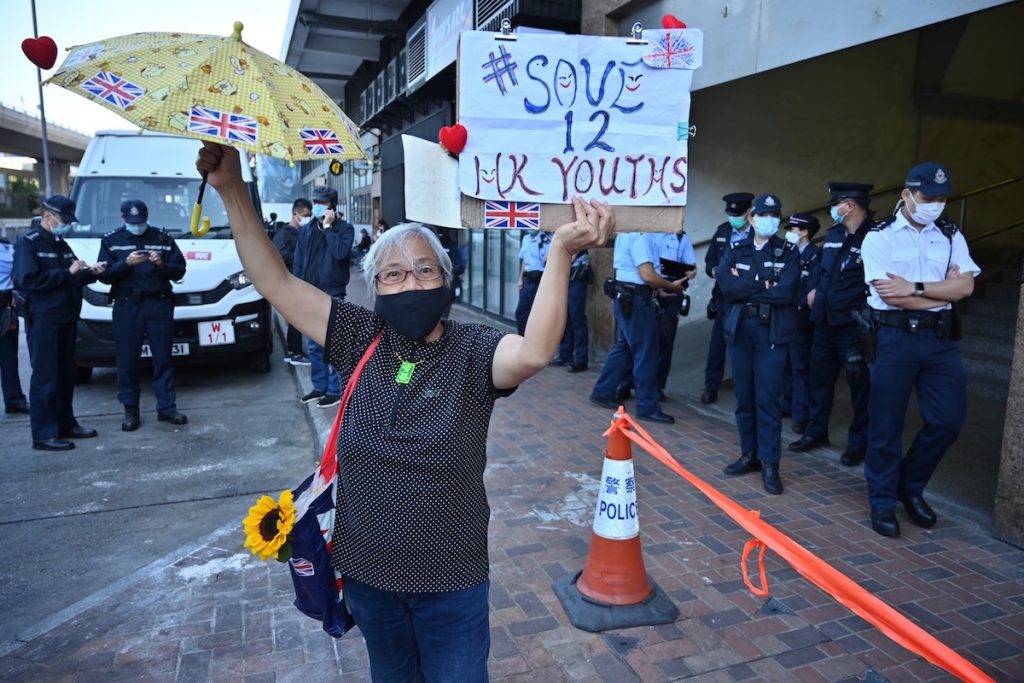The 10 Hong Kong resident recently sentenced by a Chinese court for trying to flee to Taiwan by boat are at risk of being tortured in mainland prisons, Amnesty International has warned.
Ten of the so-called Hong Kong 12 were sentenced on Dec. 30 at a court in the southern city of Shenzhen after being been detained in mainland China since attempting to leave Hong Kong by speedboat in August.
Amnesty International said in a statement that Tang Kai-yin, 31, and Quinn Moon, 33, charged with “organizing other persons to secretly cross the border”, were sentenced to two and three years’ imprisonment respectively. The eight others were charged with “secretly crossing the border” and sentenced to seven months.
Two of the Hong Kong 12 were under 18 at the time of their arrest and were handed over to the Hong Kong police on Dec. 30.
“These sentences meted out after an unfair trial lay bare the dangers faced by anybody who finds themselves tried under the Chinese criminal system,” said Yamini Mishra, Amnesty International’s Asia-Pacific regional director. “This group of young Hongkongers will be at risk of torture and other ill-treatment in Chinese jails,” Mishra said.
“The Chinese authorities have shown the world once again that political activists will not receive a fair trial,” she said, adding that diplomats, journalists and family members were not allowed to observe the effectively closed-door hearing.
The BBC reported that most of those on board the vessel fleeing to Taiwan were already facing charges linked to the huge pro-democracy protests that swept Hong Kong last year. That meant they could not leave the territory by regular means, the BBC reported.

Amnesty International said it has documented numerous cases in which detained individuals in mainland China, many of them human rights defenders, have been routinely deprived of their right to see lawyers that they or their families have chosen to represent them.
“The Hong Kong youths were deprived of the right to defend themselves through legal representation of their own choosing,” Mishra said.
“Multiple mainland lawyers attempted to represent them at the families’ request, but they have been threatened by the Chinese authorities to force them to drop the cases.”
In some instances, Amnesty said that the authorities have appointed lawyers for detainees without their, or their families’, consent. In other cases, the authorities have threatened lawyers to make them drop cases. China has also sometimes claimed, without providing evidence, that detainees have dismissed family-hired lawyers, and has stopped families from hiring lawyers.






